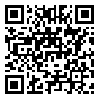Volume 21, Issue 82 (11-2021)
refahj 2021, 21(82): 245-273 |
Back to browse issues page
Download citation:
BibTeX | RIS | EndNote | Medlars | ProCite | Reference Manager | RefWorks
Send citation to:



BibTeX | RIS | EndNote | Medlars | ProCite | Reference Manager | RefWorks
Send citation to:
Mahmoodi M H, Ahmadzad-Asl M, Rasoulian M. (2021). Mental Health Positive Knowledge Questionnaire: Translation and Cultural Adaptation and Psychometric Properties. refahj. 21(82), 245-273.
URL: http://refahj.uswr.ac.ir/article-1-3852-en.html
URL: http://refahj.uswr.ac.ir/article-1-3852-en.html
Abstract: (5381 Views)
Introduction. Higher mental health literacy is related to many desirable mental health outcomes. Most studies, however, have focused on disease-oriented MHL and have not investigated positive MHL (PMHL) i.e. understanding how to maintain and improve one's mental health. This study aimed to translate a measure of PMHL named Mental Health Positive Knowledge (MHPK) to Persian and check its psychometric properties.
Methods. The translation and cultural adaptation process was performed according to Beaton et al. Any Iranian individual with a minimum age of 15 years, literacy for reading and writing, and basic internet skills could be included using a convenient method of sampling. Face and content validity were assessed by qualitative methods. Exploratory and confirmatory factor analyses were used to investigate construct and convergent validity. The split-half method and internal consistency were examined as reliability measures.
Findings. Forward and backward translations and expert panel session were used. To investigate psychometric properties a total of 1606 individuals with a mean age of 29.9 years (SD = 9.14) were recruited; 176 participants were below 18. Exploratory and confirmatory factor analyses showed a construct compatible with the original version. Cronbach's alfa of 0.81 and Guttman split-half coefficient of 0.79 were measured as reliability indices. The final version contains 1 factor and 10 items and average MHPK score was 4.21 (SD = 0.72).
Discussion. Using the MHPK questionnaire which is a measure of positive mental health literacy (PMHL) can improve MHL investigations and can help to evaluate mental health educational interventions. This study showed that the Persian MHPK is a valid and reliable measure of PMHL for literate individuals with an age of 15 years and higher.
Methods. The translation and cultural adaptation process was performed according to Beaton et al. Any Iranian individual with a minimum age of 15 years, literacy for reading and writing, and basic internet skills could be included using a convenient method of sampling. Face and content validity were assessed by qualitative methods. Exploratory and confirmatory factor analyses were used to investigate construct and convergent validity. The split-half method and internal consistency were examined as reliability measures.
Findings. Forward and backward translations and expert panel session were used. To investigate psychometric properties a total of 1606 individuals with a mean age of 29.9 years (SD = 9.14) were recruited; 176 participants were below 18. Exploratory and confirmatory factor analyses showed a construct compatible with the original version. Cronbach's alfa of 0.81 and Guttman split-half coefficient of 0.79 were measured as reliability indices. The final version contains 1 factor and 10 items and average MHPK score was 4.21 (SD = 0.72).
Discussion. Using the MHPK questionnaire which is a measure of positive mental health literacy (PMHL) can improve MHL investigations and can help to evaluate mental health educational interventions. This study showed that the Persian MHPK is a valid and reliable measure of PMHL for literate individuals with an age of 15 years and higher.
Keywords: questionnaire, positive mental health, validation, mental health literacy, positive mental health literacy
Type of Study: orginal |
Received: 2021/02/19 | Accepted: 2021/10/20 | Published: 2021/11/23
Received: 2021/02/19 | Accepted: 2021/10/20 | Published: 2021/11/23
Send email to the article author
| Rights and permissions | |
 |
This work is licensed under a Creative Commons Attribution-NonCommercial 4.0 International License. |







